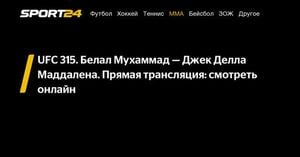An estimated 150 to 200 Ontarians have encountered significant hurdles when attempting to cash their $200 rebate cheques from Premier Doug Ford's government. These taxpayer rebate cheques, which have been sent out to millions over the past few weeks, have left some recipients frustrated and confused.
Among those affected is Kristine Newton, who shared her story with CBC News after receiving her cheque on January 21. Banking with Simplii Financial, she deposited her cheque via the bank's mobile app, seemingly without issue. That all changed when, two days later, she discovered her account was overdrawn. The payment for her $200 cheque had been halted, leaving her distressed and without the money she had planned to use for her cat's veterinary care.
Newton's experience serves as a cautionary tale. "To say I was upset is an understatement," she expressed, emphasizing the necessity of the funds—especially after being unemployed for more than a year and recently obtaining part-time work. After contacting her bank and Ontario's Ministry of Finance, she found herself still waiting for answers.
The situation has been attributed to issues linked to the Royal Bank of Canada (RBC), which was responsible for issuing the cheques on behalf of the government. A spokesperson for Finance Minister Peter Bethlenfalvy confirmed the ministry's awareness of the problems, stating, "The issue can be traced to RBC." RBC's representative Andrew Block later acknowledged the mishap, saying, "On very rare occasions, our protocols may result in a cheque being returned when it should have been processed," explaining the cheque's failure was not due to insufficient funds but rather internal processing errors.
Despite the confusion caused, Block assured customers affected have since received their funds and apologized for any inconvenience. Newton, too, reported her funds finally reflecting correctly in her account along with reimbursement for the fees incurred due to the bounced cheque.
The $200 rebates, announced by the Ford government last October as part of relief for the rising cost of living, are being sent to every Ontarian over 18 years old. Parents are also set to receive an additional $200 per child. On January 17, it was confirmed the cheques were officially on their way.
Critics of the program, including opposition leaders, have attacked the government's decision to provide these cheques to every qualifying Ontarian, rather than means-testing the recipients. Eligibility for the rebate requires individuals to have filed their 2023 income tax return, not be incarcerated as of 2024, and not be insolvent. With around 12.5 million adults and 2.5 million children expected to benefit, the program incurs significant costs, estimated at $3 billion. This figure does not include additional administrative expenses, which the Ministry of Finance plans to disclose later.
The complications involving the bounced cheques have raised questions about the program's administration and overall effectiveness. Some Ontarians weighing their options for the rebate are considering donating the funds or using them to alleviate personal debt, highlighting various perspectives on the government initiative.
The rebate plan is yet another government effort to ease financial burdens amid rising living costs. Following the significant challenges some recipients faced during this processing, many will be watching closely to see how the government addresses these concerns and maintains public confidence moving forward.
While the Ford government aims to alleviate economic strain through its direct payments, malfunctions like bounced cheques could overshadow these good intentions. Resolving the underlying causes of such issues will be key to restoring faith in these financial assistance measures and ensuring they effectively reach those who need them most.
Efforts are underway to identify the scale of the impact, as RBC has suggested the number of troubled cheques could be placed at around 150 to 200. Moving forward, it remains imperative for the government and financial institutions to be transparent about their processes and responsive to constituents' needs, ensuring the intended assistance successfully reaches every eligible Ontarian.
While suggestions for the $200 rebate may vary greatly among recipients, the necessity for reliable, accessible cash flow on the part of those facing financial constraints is universal. The story of Kristine Newton exemplifies the pitfalls of this recent program, framing larger concerns about efficiency and governmental accountability.
Only time will tell how this episode will play out for both the Ford government and the residents of Ontario, but the need for clarity and resolution from the institutions involved is more pressing than ever.



